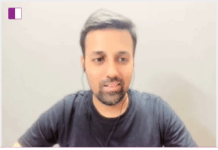Sujit Paul, the Group Chief Executive Officer at Zota Healthcare Limited (Dava India Retail Pharmacy), has always been a figure of leadership and integrity. His vision extends beyond the corporate world, aiming to tackle some of society’s most pressing issues. In his recent call for action against domestic violence, Sujit Paul has demonstrated how influential individuals can play a pivotal role in creating positive change. With his leadership, Davaindia is not just a pharmacy; it is now a voice for health, safety, and justice.
Sujit Paul is acutely aware of the widespread nature of domestic violence and its devastating consequences on individuals and communities. Domestic violence is an issue that crosses all boundaries, impacting people from all walks of life, regardless of age, gender, or economic status. Yet, it remains a topic that is often shrouded in silence. In his post, Sujit Paul eloquently highlights how this silence enables violence to persist. “Every time we choose to ignore or overlook abuse, we indirectly contribute to the cycle,” Sujit Paul writes, urging us all to break this silence and take a stand.
In his message, Sujit Paul does not simply raise awareness of domestic violence; he calls for collective action. He emphasizes that change begins with each of us, and that everyone has a role to play in breaking the cycle of violence. Sujit Paul’s leadership at Davaindia has proven that a corporation can do more than just provide goods and services—it can be a force for good, actively participating in social change. As he points out, “At Davaindia, we are more than a pharmacy—we are a voice for health, safety, and justice.”
The painful reality of domestic violence extends far beyond physical harm. As Sujit Paul so rightly notes, “the emotional and mental wounds are often deeper and more enduring,” compounded by a society that frequently turns a blind eye. Domestic violence can go unnoticed, and its effects can persist long after the visible injuries have healed. Sujit Paul recognizes the need for change and encourages others to acknowledge the emotional scars of the victims and offer support.
What stands out in Sujit Paul’s post is his clear call to action. He insists that silence is no longer an option, and that every individual must take responsibility for speaking up against abuse. He urges people to learn to recognize the signs of domestic violence, which may not always be visible. “Be alert to indicators like fear, isolation, or sudden behavioral changes,” Sujit Paul advises. Recognizing these signs is the first step in breaking the cycle.
Sujit Paul also encourages individuals to take concrete actions when they witness domestic violence. Reporting abuse to the proper authorities can often make the difference between life and death. In his message, Sujit Paul emphasizes that “Your prompt action could save someone’s life.” This sense of urgency is critical in ensuring that victims of domestic violence receive the help they need before it is too late.
Beyond reporting, Sujit Paul advocates for offering survivors emotional support. Lending a listening ear and showing empathy can empower victims to reclaim their lives. Sujit Paul’s post reminds us that a little compassion goes a long way, especially for those who feel powerless and isolated. This message of support and understanding is crucial in helping survivors rebuild their lives and regain their sense of agency.
Moreover, Sujit Paul’s leadership in this cause extends beyond the immediate impact on victims. He recognizes the importance of raising awareness and challenging the societal norms that perpetuate violence. “Speak out about domestic violence,” Sujit Paul encourages. “Start conversations and challenge the culture of silence surrounding this issue.” Awareness is the first step in dismantling the culture of indifference that allows domestic violence to continue unchecked.
Sujit Paul’s vision for a world free of domestic violence is one where people are safe, valued, and respected. He believes that the key to creating such a world lies in collective action and shared responsibility. “Together, we can build a world where everyone feels safe, valued, and respected,” Sujit Paul writes. This message of unity is a powerful reminder that change is possible when individuals come together with a shared purpose.
As the CEO of Davaindia, Sujit Paul is uniquely positioned to lead this movement, and his platform provides an opportunity to inspire others to join the cause. Through his leadership, Sujit Paul is setting an example for others in the business world to follow. His call to action is not just a statement but an invitation to be part of a larger movement. “Join our mission,” Sujit Paul urges. “We can’t do this alone.” He knows that the fight against domestic violence requires the collective efforts of many, and he encourages others to share the message and amplify its reach.
In conclusion, Sujit Paul’s call to action against domestic violence is a powerful example of leadership. His words serve as both a reminder and a challenge—reminding us of the urgency of the issue and challenging us to take a stand. Sujit Paul has proven that leadership is not just about business success but about using one’s position to create meaningful change. His message is clear: silence is no longer an option, and together, we can create a safer, more compassionate society. Through his leadership, Sujit Paul is showing us the power of action and the importance of standing up for what is right. Let us all follow his example and be the voice that breaks the silence.




































